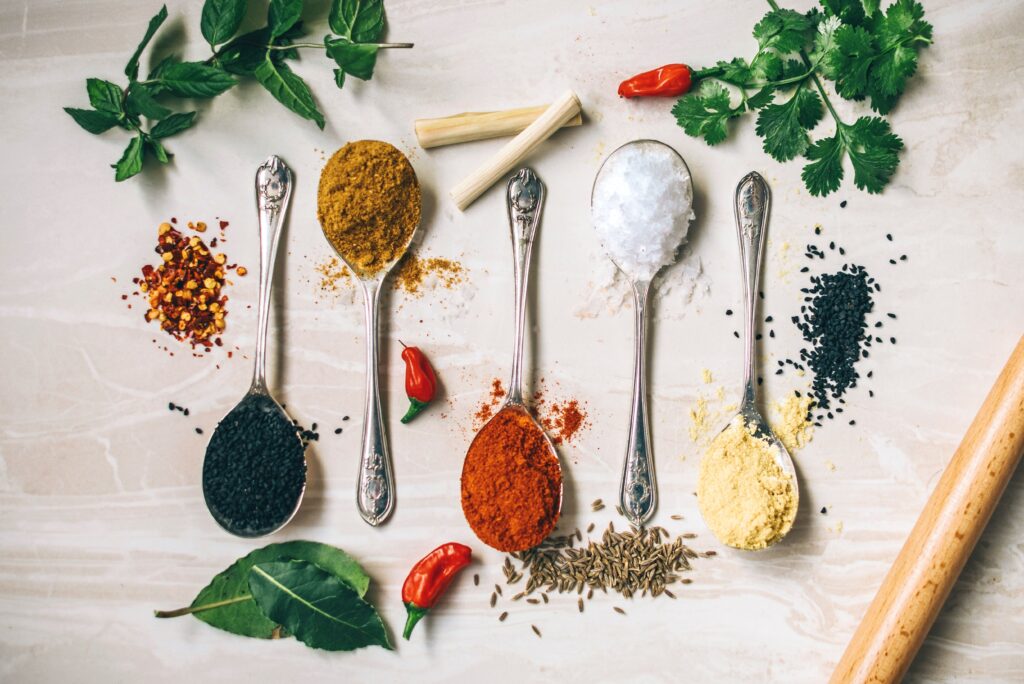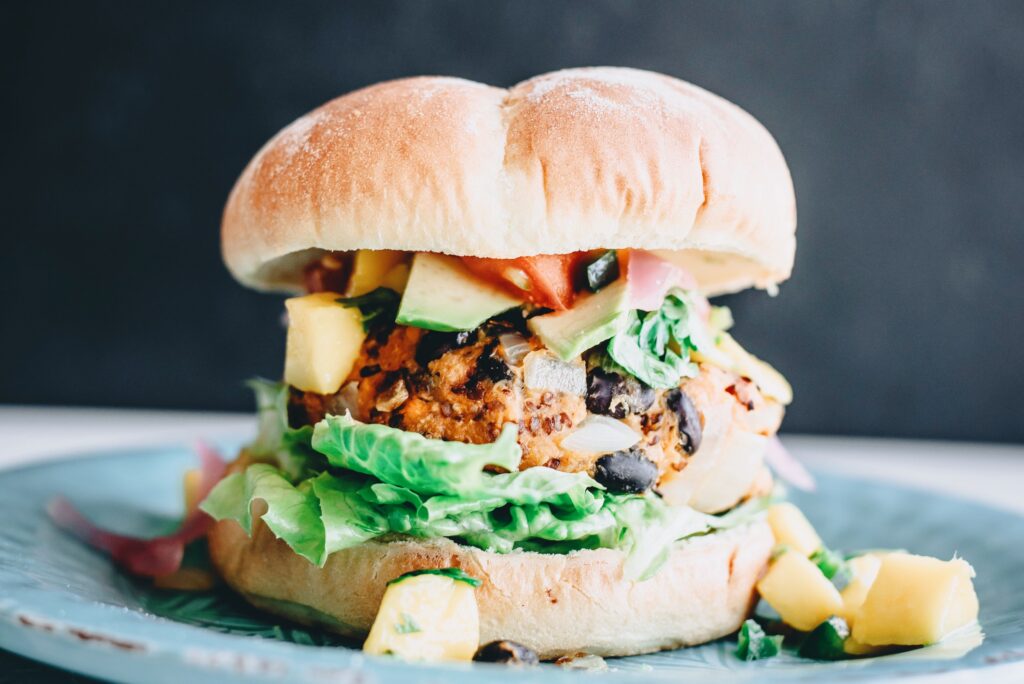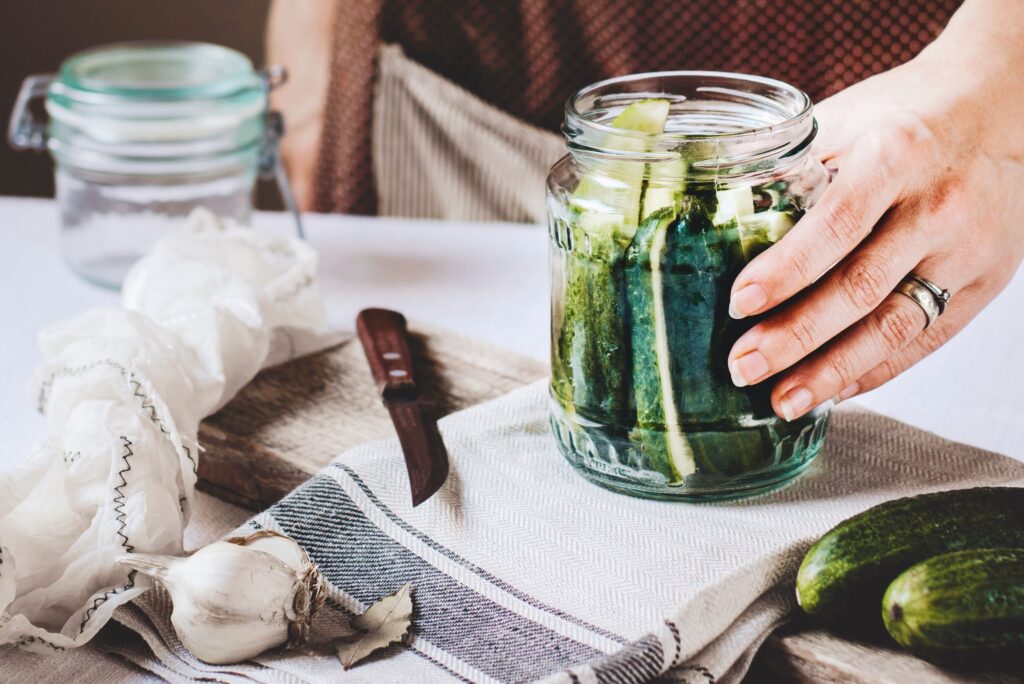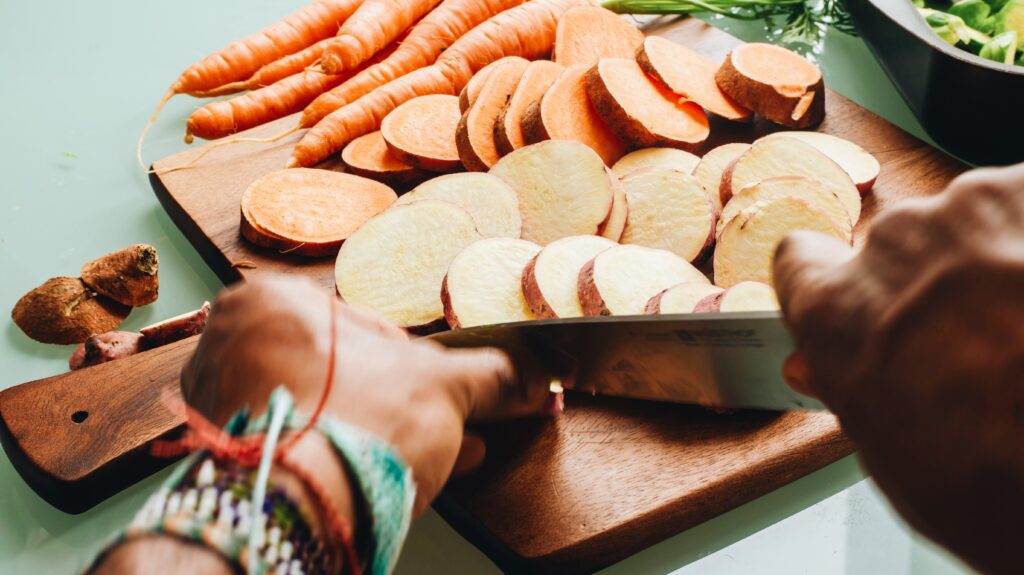You should trust your gut. We don’t mean your intuition (although that should also be trusted often), but here, we’re talking specifically about your gastrointestinal system. Research suggests there is a link between physical, mental, and gut health. If you take care of the latter, you might see a big improvement in the former. Let’s look at what the gut actually is, as well as how you may be able to improve your gut health on a vegan diet.
What is the gut?
While you may associate the phrase “gut feeling” with butterflies or uneasiness in the pit of your stomach, in the medical sense, the gastrointestinal system consists of the mouth, esophagus, stomach, pancreas, liver, gallbladder, small intestine, colon, and rectum. Often referred to as our gut, it’s also known as the digestive system or the gastrointestinal tract.
According to Dr. Lisa Ganjhu, a clinical assistant professor of medicine at NYU Langone Medical Center, the gut helps with so much more than food digestion. She wrote for the Division of Gastroenterology & Hepatology: “Our gut plays a major role, not only in our gastrointestinal health but in the health and well-being of the entire body.” It can send messages to our brain and even fight disease.
In fact, according to Ganjhu, the gut is actually one of the body’s core disease-fighting systems. She notes: “All foods we eat are in communication with immune receptors in the digestive tract, triggering hormones and various cell types that help the body with its immune function.”
For that reason, our gut isn’t something we should overlook. If you follow a vegan diet and want to improve your gut health, here are 7 ways to get started.
7 Ways to Promote Gut Health

Seek Out Anti-Inflammatory Foods
Stomach issues can sometimes be linked to having a “leaky gut;” this is when the lining of the intestine weakens and bacteria “leaks” into the body.
According to Matthew Solan, the executive editor of Harvard Men’s Health Watch, this can trigger gut inflammation, as well as inflammation elsewhere in the body, causing a “chain reaction” of problems, like bloating and cramps.
For some, intestinal weakening may be linked to diet. Dr. Alessio Fasano, director of the Center for Celiac Research and Treatment with Harvard-affiliated Massachusetts General Hospital, explains: “Some people may have a weaker barrier because they were born with it, or they follow an unbalanced diet low in fiber and high in sugar and saturated fats, which may be the trigger that weakens the gut lining.”
If you think you may be suffering with a leaky gut, it’s best to consult your doctor to find out more about what may be causing your symptoms. They may recommend trying to reduce inflammation through diet. Fasano added: “In theory, reducing inflammation from your diet like this also may rebuild the gut lining and stop further leakage.”
A whole foods, plant-based diet is high in fiber and low in processed foods, you can find out more about what it is and how to follow it here.
For more information on inflammation and how food can trigger it, find our explainer here.

Eat the Right Kinds of Fruit and Vegetables
Irritable bowel syndrome (IBS) is a common condition that impacts the colon, also known as the large intestine. Symptoms include painful bloating, gas, and constipation. For some with IBS, the main cause is stress, but for others, it’s diet. Some people with IBS may be able to ease their symptoms by choosing the right kinds of fruits and vegetables.
Foods that are high in fermentable carbohydrates, known as FODMAPs, can cause IBS symptoms for many people, this is why many doctors recommend following a low FODMAP diet for a limited time. IBS sufferers start by restricting all FODMAP foods, before slowly adding some back in in an attempt to try and figure out what is causing their symptoms.
High FODMAP vegetables that may cause IBS symptoms include cauliflower, onions, garlic, and asparagus. Low FODMAP vegetables include broccoli (specifically the head, in small amounts), carrots, butternut squash, and aubergine.

Eat Friendly Carbs
It’s not just certain vegetables that can aggravate your gut and lead to IBS, certain forms of carbohydrates can too. The low FODMAP diet advises followers to avoid a number of carbohydrate sources. These include: pastries, gnocchi, wheat noodles, multigrain bread, and crumpets. But, there are still a number of vegan-friendly carbs you can enjoy, like gluten-free bread and pasta, rice flour, buckwheat, quinoa, oats, polenta, and (everyone’s favorite) potatoes.

Drink Plant Milk
If you’re experiencing digestive issues, cutting out dairy may help to ease your symptoms. This is because you might be intolerant to lactose, a type of sugar found in cow’s milk. It’s an incredibly common intolerance, affecting around 65 to 70 percent of the global population.
Like many other conditions that impact the gut, symptoms include bloating, cramps, and diarrhea.
If you think you may be lactose intolerant, visit your doctor to confirm the diagnosis, and then explore your dairy-free options!

Swap Meat for Beans
For optimal gut health, consider reducing the number of processed animal products you consume, or avoiding them altogether. These foods may worsen gut inflammation, which may lead to chronic disease.
There is a strong association between high processed meat consumption and colon cancer, for example. Experts believe that inflammation in colon cells in response to processed meat may be one contributing factor to cancer development. (Examples of processed meat include bacon, sausages, and jerky.)
You can read more about the link between processed meat and cancer here.
Gut inflammation may also be worsened by Candida overgrowth. Find out more about the Candida diet (which recommends avoiding processed animal products) here.
Instead of meat, consider opting for beans and legumes. They’re high in protein, fiber, B vitamins, and they’re great for your gut. Pinto beans, for example, can stimulate the production of propionate, a short-chain fatty acid produced by gut bacteria. And peas, a legume, may help the growth of healthy intestinal bacteria.

Eat Fermented Vegetables
Within our intestines lives a universe – not of stars, but of trillions of bacteria. Together with microscopic viruses and fungi, this bacteria lives predominantly in the cecum, which is found in the large intestine.
It’s perhaps not quite as pretty as the Milky Way, but to our bodies, this microbiome plays an incredibly important role. It helps to control the immune system, digestion, and even the central nervous system and brain health.
Not all bacteria are good; some can cause disease and infection. Each body has its own mix of good and bad bacteria, and when the balance is off, this is when we can run into problems, including high cholesterol and high blood sugar.
Eating fermented foods can support gut health, as they may help to strengthen the microbiome. This is because they contain probiotics, aka good live bacteria. To get the gut benefits from fermented vegetables, look for the “naturally fermented” label, as not every fermented food on supermarket shelves is done so with live organisms.
Or, you could naturally ferment your own vegetables.

Reduce Stress
There is a big link between your brain and your gut; the health of one can majorly impact the health of the other.
Other than diet, a key cause of IBS is anxiety or stress. In fact, it’s estimated that around 60 percent of IBS sufferers have some form of mental health disorder.
Keeping stress levels down may help to keep your gut happy. And on the flip side, taking care of your gut by eating the right foods may also help your mental state.
Dr. Uma Naidoo, M.D, a nutritional psychiatrist and the author of This Is Your Brain on Food, told LIVEKINDLY: “Studies have shown how gut bacteria in the microbiome impacts mental function. An unhealthy gut microbiome leads to an unhealthy brain and vice versa. The power of brain food can reset your microbiome and steer you back to a healthy mental state.”
It’s easy to take control of your gut health; eating a balanced diet full of healthy fiber-rich foods is key to ensuring overall wellbeing. Keeping stress and anxiety levels down as much as possible can also help, as well as trying out fermented foods and avoiding processed meats.
We hope these tips have been helpful, but remember, if you’re concerned about any new symptoms, like stomach pain, bloating, or diarrhea, always get yourself checked out by a medical professional.


